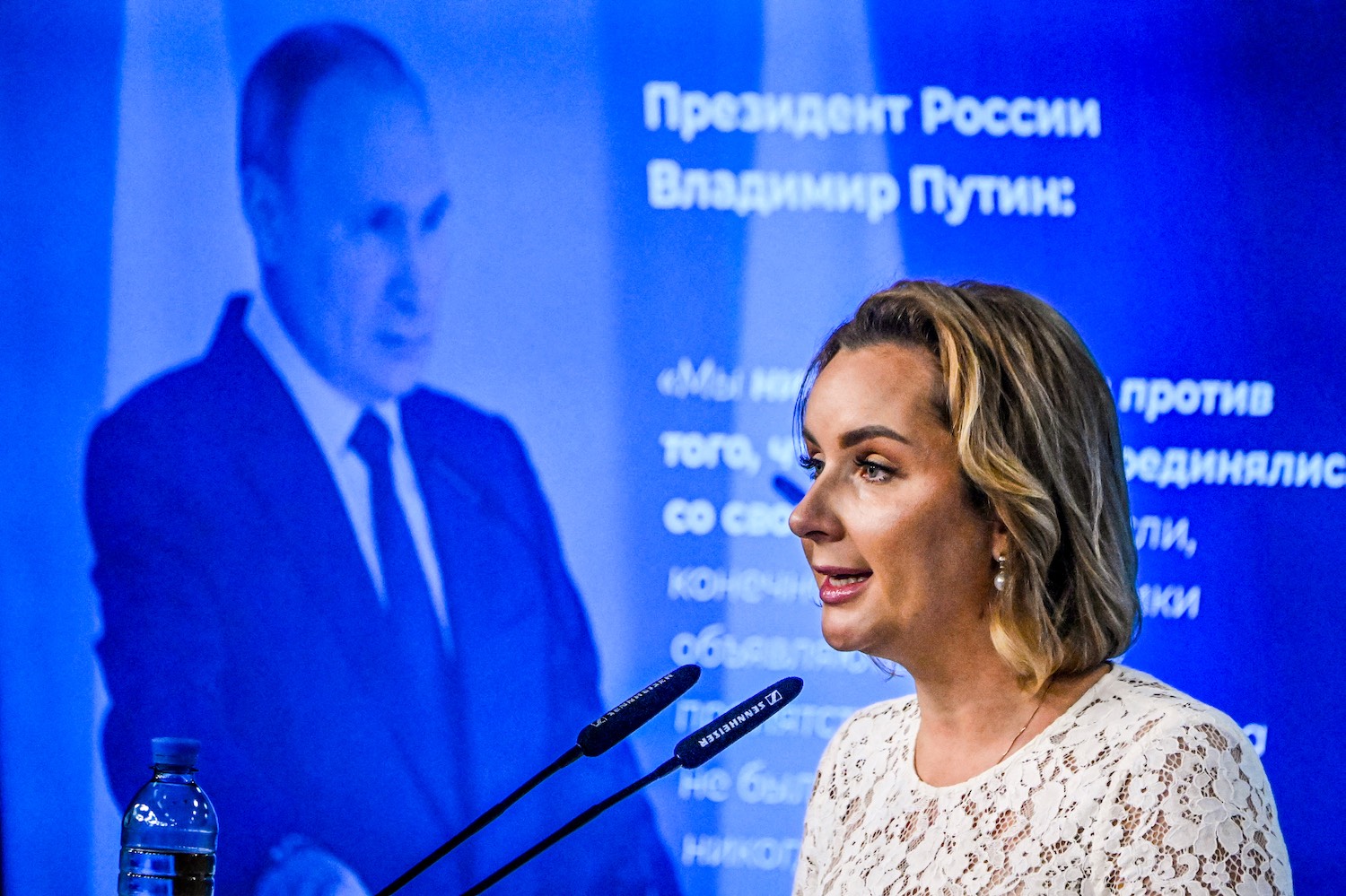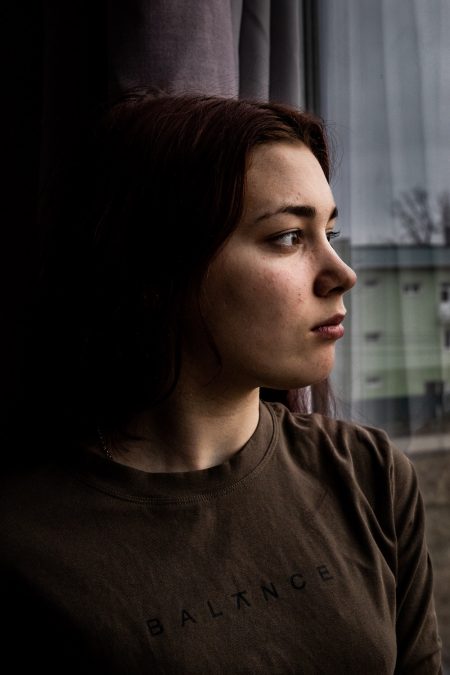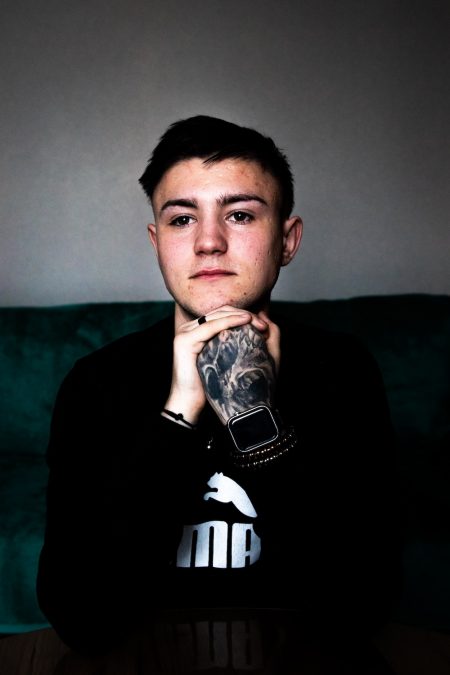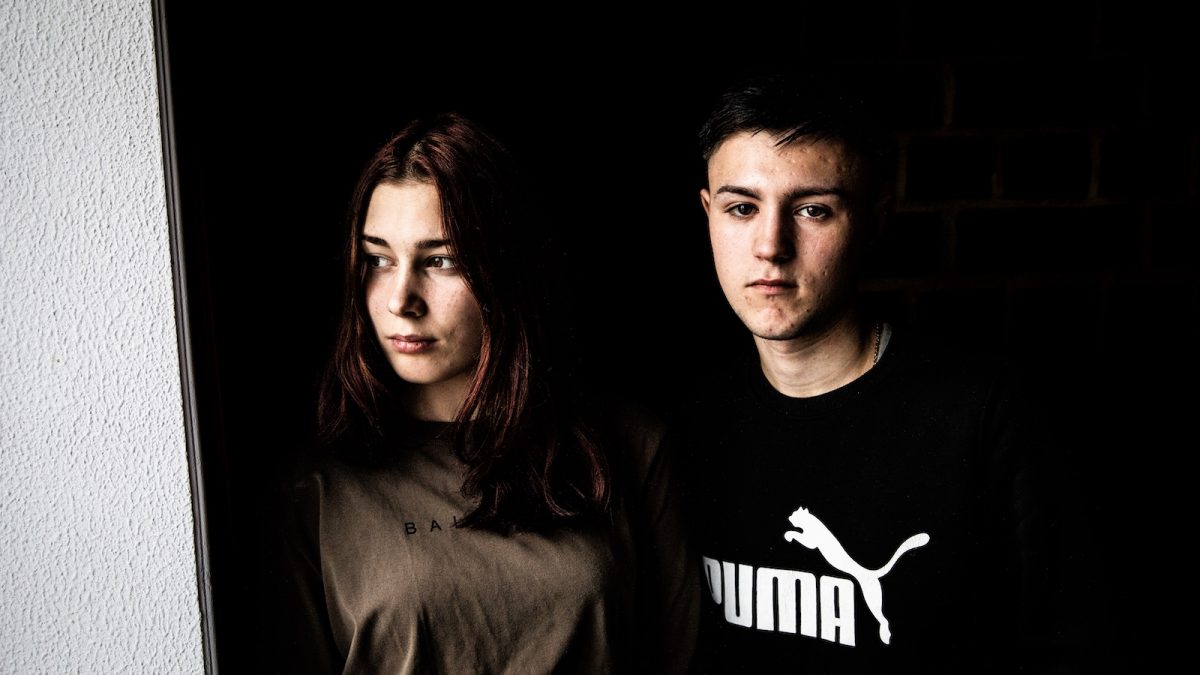“If you don’t become pro-Russian, you will die”, abducted Ukrainian children on Putin’s re-education camps
Lisa and Denis. Ukrainian teenagers from Kherson who were separated from their families by Russians occupying their homes. After nearly a year of supervision by Putin’s regime, they are now trying to reintegrate into everyday life in Ukraine. Despite more than two years of war, they have plans for the future. At a Kyiv Oblast facility of the organisation that managed their return, Válasz Online’s reporter was told in detail what had happened to them. (The story is also available in Hungarian.)
“Genocide” means any of the following acts committed with intent to destroy, in whole or in part, a national, ethnical, racial or religious group, as such (…): (e) Forcibly transferring children of the group to another group. (Rome Statute of the International Criminal Court, Article 6)
285 children have been identified. Most of them were registered in the Russian child protection system between October and November 2022. They can be adopted, despite the earlier promise of the Russian human rights commissioner that they would be placed in children’s homes, and if a blood relative applies for them, they can return home. At least 76 of the 285 have already been adopted. These are data from a recent investigation that was published on the independent Russian portal Verstka.
One of the most painful aspects of the full-scale Russian–Ukrainian war that has been going on for 26 months is the case of Ukrainian children taken to Russia from occupied Ukrainian territories. A crime according to the Rome Statute of the International Criminal Court (ICC), but Moscow – which has not considered itself a party to the statute since November 2016 – usually comes up with the explanation that it is only saving children from the dangers of war. This, however, did not affect the ICC: in addition to Vladimir Putin, the other subject of its international arrest warrant issued last March was the president’s commissioner for children’s rights, Maria Lvova-Belova.

The scale of the problem is reflected by the combatants’ war of numbers. According to Ukraine, 19,546 children have been taken so far, while Russia is talking about more than 700,000. US Secretary of State, Antony Blinken estimated 260,000 in July 2022 – when Kyiv and Chernihiv Oblasts had already been de-occupied, but a significant part of Kharkiv Oblast and the western chunk of Kherson Oblast were still occupied by Russia.
In the past two years, there have also been cases with a happy ending. For example, Qatar has successfully mediated the repatriation of some Ukrainian children, but it is uncertain whether Moscow will allow this to become the norm. In addition to state actors, NGOs also specialise in this kind of work. Save Ukraine, for instance, has helped the return of 276 children. Válasz Online was granted exclusive access to the Kyiv Oblast facility of this organization at the end of February. There, in studio apartments, families whose children have recently returned home are accommodated. This is where the first phase of reintegration takes place. As a non-state actor, this is where Save Ukraine is best able to help.
And in logistics too. Parents who turn to them are first navigated through the state’s bureaucracy and then are helped in organising the trip itself. The latter can be several weeks’ challenge. Despite Kherson Oblast being close to Crimea on the map, a child dragged to occupied territories might be reached through Poland, Belarus – or perhaps the Baltic states – and Russia. Then vice versa. Success is not guaranteed however: mothers can usually take their children home if their papers are in order, but for grandparents, godparents or guardians, it is not that well defined. There is no proven method, each case is unique. Just like the two youngsters with whom we had the opportunity to talk at the Save Ukraine’s base. These are the personal accounts of Lisa and Denis.

Lisa (17)
“I used to live with my mother in Kherson. As a high school student, I moved away from home to a
dormitory in the city, which belonged to Vocational High School No. 2, where I studied to be a cook. When classes started in September 2022 the city was still under occupation. The collaborating headmistress told us that we had to go to the Crimea. Seven of us, our group, had to line up. I don’t know what happened to the others. After we had queued up, she told us that if we didn’t agree, she would take us down to the basement. I wasn’t able to call my mom as there was no signal in Kherson because of the occupation. I packed my things and the next evening I was already in Crimea. In the Druzhba (Friendship) camp in Yevpatoria. There, boys and girls were separated. There were about a thousand of us.
‘You are safe here, there is no shelling, no war and your parents didn’t want you’ – this was the explanation of why we were there. I didn’t care, I wanted to go home – I still want to go home now, even though Kherson is being shelled more extensively than then. The conditions in Druzhba were bad. There was no fresh food. A few weeks later a guard, Astakhov – a former Ukrainian policeman-turned collaborator – gathered all the Ukrainian children and said we would stay there until the end of summer. He threatened us. He found a Ukrainian flag on one of the girls. It wasn’t even big. He took it, set it on fire and said: your whole country will burn like this. It was forbidden to speak Ukrainian, listen to Ukrainian music, or wear anything blue and yellow – a reminder of Ukrainian colors.
I was in Druzhba for two months. After that I ended up in Luchistyy. It is also in Yevpatoria. In January, they gathered the girls at my age and took us to Henichesk to study. They didn’t ask if we wanted to go or whether we wanted to study there. It was very cold in the dormitory, the wind blew through the windows. The doors could not be locked, Russian soldiers checked our rooms at night. They shone a flashlight on us. It didn’t matter if we were dressed. We had to learn the Russian national anthem, which we then had to sing while standing in line in the morning. The teachers were watching to see if we knew it.
There were Russian patriotic lessons in Henichesk, but I don’t remember what we studied. I was not listening. We weren’t aware of the severity of the crime they were committing on us. Only when we got here to Kyiv. Here we understood how serious the matter was. The others who stayed? They became pro-Russian. Both in the camp and in Henichesk. Especially if they had got there as orphans. Even though they had been pro-Ukrainian. They had no choice. Only one point of view is allowed there.
I would have received a Russian passport. This way I would have been officially considered an orphan and they would have looked for foster parents. Maria Lvova-Belova once visited our school. She offered us 100,000 rubles and an apartment as soon as we turned 18, on the condition of staying in Russia. She told everyone that we could choose whether to accept it or not. But if we said no, they tried to convince us. Still, I refused.
My mother didn’t know where I had ended up. She had Ukrainian phone number, I had Russian. I contacted her from Henichesk after four months. That’s when I found out that she had contacted Save Ukraine. ‘Daughter, I’ll arrange the passport, I’ll come for you,’ she said. I started to cry. I asked when she was coming, but she couldn’t say more on the phone.
When the teachers and the principal found this out, they started persuading me to stay. They said it was a lie that my mother would come for me, because she would have neither the opportunity nor the money to do so. I believed them. Finally, I got in touch with a friend of mine from Kherson. I learned from her that the city had been liberated. She told me not to believe my teachers; they say what they say so that I wouldn’t go back to Ukraine and find out what was going on in the occupied territories. After talking to her, I calmed down and waited for my mum. She finally came in May 2023. I ran to her and hugged her. Everyone was shocked that she had made it that far. She had to sign a lot of papers and we had a difficult journey. But we got home.
I’ve been living here with my mum ever since. The plan is to rent an apartment in Kyiv. I don’t know when. I am completing my 10th grade online. I like photography – I’m learning with an old Nikon – I want to make a living from it. I want my own house and family. Maybe in Kyiv, because Kherson is not safe. I’m on TikTok and writing poems on Telegram. In the meantime, I’m also studying hairdressing, I would like to have my own salon. I also cut Denis’ hair, a special style. We’re dating.”
Lisa (17)
“I used to live with my mother in Kherson. As a high school student, I moved away from home to a
dormitory in the city, which belonged to Vocational High School No. 2, where I studied to be a cook. When classes started in September 2022 the city was still under occupation. The collaborating headmistress told us that we had to go to the Crimea. Seven of us, our group, had to line up. I don’t know what happened to the others. After we had queued up, she told us that if we didn’t agree, she would take us down to the basement. I wasn’t able to call my mom as there was no signal in Kherson because of the occupation. I packed my things and the next evening I was already in Crimea. In the Druzhba (Friendship) camp in Yevpatoria. There, boys and girls were separated. There were about a thousand of us.
‘You are safe here, there is no shelling, no war and your parents didn’t want you’ – this was the explanation of why we were there. I didn’t care, I wanted to go home – I still want to go home now, even though Kherson is being shelled more extensively than then. The conditions in Druzhba were bad. There was no fresh food. A few weeks later a guard, Astakhov – a former Ukrainian policeman-turned collaborator – gathered all the Ukrainian children and said we would stay there until the end of summer. He threatened us. He found a Ukrainian flag on one of the girls. It wasn’t even big. He took it, set it on fire and said: your whole country will burn like this. It was forbidden to speak Ukrainian, listen to Ukrainian music, or wear anything blue and yellow – a reminder of Ukrainian colors.
I was in Druzhba for two months. After that I ended up in Luchistyy. It is also in Yevpatoria. In January, they gathered the girls at my age and took us to Henichesk to study. They didn’t ask if we wanted to go or whether we wanted to study there. It was very cold in the dormitory, the wind blew through the windows. The doors could not be locked, Russian soldiers checked our rooms at night. They shone a flashlight on us. It didn’t matter if we were dressed. We had to learn the Russian national anthem, which we then had to sing while standing in line in the morning. The teachers were watching to see if we knew it.
There were Russian patriotic lessons in Henichesk, but I don’t remember what we studied. I was not listening. We weren’t aware of the severity of the crime they were committing on us. Only when we got here to Kyiv. Here we understood how serious the matter was. The others who stayed? They became pro-Russian. Both in the camp and in Henichesk. Especially if they had got there as orphans. Even though they had been pro-Ukrainian. They had no choice. Only one point of view is allowed there.
I would have received a Russian passport. This way I would have been officially considered an orphan and they would have looked for foster parents. Maria Lvova-Belova once visited our school. She offered us 100,000 rubles and an apartment as soon as we turned 18, on the condition of staying in Russia. She told everyone that we could choose whether to accept it or not. But if we said no, they tried to convince us. Still, I refused.
My mother didn’t know where I had ended up. She had Ukrainian phone number, I had Russian. I contacted her from Henichesk after four months. That’s when I found out that she had contacted Save Ukraine. ‘Daughter, I’ll arrange the passport, I’ll come for you,’ she said. I started to cry. I asked when she was coming, but she couldn’t say more on the phone.
When the teachers and the principal found this out, they started persuading me to stay. They said it was a lie that my mother would come for me, because she would have neither the opportunity nor the money to do so. I believed them. Finally, I got in touch with a friend of mine from Kherson. I learned from her that the city had been liberated. She told me not to believe my teachers; they say what they say so that I wouldn’t go back to Ukraine and find out what was going on in the occupied territories. After talking to her, I calmed down and waited for my mum. She finally came in May 2023. I ran to her and hugged her. Everyone was shocked that she had made it that far. She had to sign a lot of papers and we had a difficult journey. But we got home.
I’ve been living here with my mum ever since. The plan is to rent an apartment in Kyiv. I don’t know when. I am completing my 10th grade online. I like photography – I’m learning with an old Nikon – I want to make a living from it. I want my own house and family. Maybe in Kyiv, because Kherson is not safe. I’m on TikTok and writing poems on Telegram. In the meantime, I’m also studying hairdressing, I would like to have my own salon. I also cut Denis’ hair, a special style. We’re dating.”

Denis (18)
“My hair now looks good.
They also took me to the Druzhba camp, but in a different way. On October 7, 2022, Russian soldiers knocked on the door of our apartment saying that I had to go to Russia. I said I wasn’t going. They said they didn’t care, I had to go. My parents are deaf so they couldn’t resist. I had to pack. They took us by bus to the river port in Kherson. They said it would only be two weeks. They took us to Oleshky by ferry. We saw that there were many soldiers around. For three hours, we have been waiting hungry and thirsty for another bus in which we went to Yevpatoria, to the Druzhba camp.
I was also overseen by the same fugitive Berkut riot police officer: Valery Astakhov. He said things like Ukraine was Russian territory and we would be Russia’s slaves. Then he threatened us that if we said anything about Ukraine, we could pack up and walk home on foot. He called some kids into his office. Those who came out had no longer an opinion on anything. We also learned the history of Ukraine – from a Russian point of view. The same thing happened with us, as with Lisa: if they found any Ukrainian symbols, they burned them.
I have diabetes. When I told the doctors at the camp that I was running out of medicine, they told me to come back when it was all gone. Then Astakhov came and said: if you don’t become pro-Russian, you will die – pro-Ukrainians are not treated here. After a month, I got so sick that the ambulance was called. I was in the emergency ward for two days, then they took me to Simferopol
because there was no doctor in Yevpatoria who could treat me. I was in the hospital for three weeks.
In December 2022, children were transferred from Druzhba to Luchistyy. In February, they took me to a new place to study. Without being asked. I was sent to the Russian Navy School in Kerch. I was nervous, my blood pressure went up. I was there until the end of the school year, during which they constantly pressured me to get a Russian passport. Then they came with the offer of 100,000 rubles and an apartment.
A friend called me. He said that I could get home with the help of Save Ukraine. I called their hotline from a Russian number, told them everything and that I wanted to go home. I hadn’t known anything about my parents for ten months then, they couldn’t come for me. So my friend’s mother got power of attorney for that. Of course, I didn’t know anything about this, it had to be kept secret. As the day approached, my friend finally told me. I jumped for joy.
We left for home in June 2023. The FSB interrogated me twice on the border between Crimea and Russia, they looked through my phone. When I saw the name of my country written on the Ukrainian border sign, I hugged my big bag and sighed: glory to Ukraine!
I’ve been here ever since. I lived alone for a long time. I’m studying the 10th and 11th grade online, I need to catch up. I was at home in the summer, my parents had recently moved in with me. We speak in sign language.
Plans? We will definitely stay here for a while, but when I have my own income, we would like to rent an apartment. And the love of my life is here. I want to live with her. I would like to have my own car repair shop. And to build two houses: one for us, one for my parents. They have suffered enough.
Denis (18)
“My hair now looks good.
They also took me to the Druzhba camp, but in a different way. On October 7, 2022, Russian soldiers knocked on the door of our apartment saying that I had to go to Russia. I said I wasn’t going. They said they didn’t care, I had to go. My parents are deaf so they couldn’t resist. I had to pack. They took us by bus to the river port in Kherson. They said it would only be two weeks. They took us to Oleshky by ferry. We saw that there were many soldiers around. For three hours, we have been waiting hungry and thirsty for another bus in which we went to Yevpatoria, to the Druzhba camp.
I was also overseen by the same fugitive Berkut riot police officer: Valery Astakhov. He said things like Ukraine was Russian territory and we would be Russia’s slaves. Then he threatened us that if we said anything about Ukraine, we could pack up and walk home on foot. He called some kids into his office. Those who came out had no longer an opinion on anything. We also learned the history of Ukraine – from a Russian point of view. The same thing happened with us, as with Lisa: if they found any Ukrainian symbols, they burned them.
I have diabetes. When I told the doctors at the camp that I was running out of medicine, they told me to come back when it was all gone. Then Astakhov came and said: if you don’t become pro-Russian, you will die – pro-Ukrainians are not treated here. After a month, I got so sick that the ambulance was called. I was in the emergency ward for two days, then they took me to Simferopol
because there was no doctor in Yevpatoria who could treat me. I was in the hospital for three weeks.
In December 2022, children were transferred from Druzhba to Luchistyy. In February, they took me to a new place to study. Without being asked. I was sent to the Russian Navy School in Kerch. I was nervous, my blood pressure went up. I was there until the end of the school year, during which they constantly pressured me to get a Russian passport. Then they came with the offer of 100,000 rubles and an apartment.
A friend called me. He said that I could get home with the help of Save Ukraine. I called their hotline from a Russian number, told them everything and that I wanted to go home. I hadn’t known anything about my parents for ten months then, they couldn’t come for me. So my friend’s mother got power of attorney for that. Of course, I didn’t know anything about this, it had to be kept secret. As the day approached, my friend finally told me. I jumped for joy.
We left for home in June 2023. The FSB interrogated me twice on the border between Crimea and Russia, they looked through my phone. When I saw the name of my country written on the Ukrainian border sign, I hugged my big bag and sighed: glory to Ukraine!
I’ve been here ever since. I lived alone for a long time. I’m studying the 10th and 11th grade online, I need to catch up. I was at home in the summer, my parents had recently moved in with me. We speak in sign language.
Plans? We will definitely stay here for a while, but when I have my own income, we would like to rent an apartment. And the love of my life is here. I want to live with her. I would like to have my own car repair shop. And to build two houses: one for us, one for my parents. They have suffered enough.
***
Photos by Szabolcs Vörös/Válasz Online
Translated by Gergely Papp







